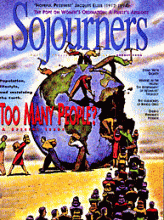Recently during a worship service I heard the prayer, "God, help us to sit not so much in scrutiny of each other but rather in company with each other." As I read, studied, and prayed about these three books on racial reconciliation—Breaking Down Walls, by Raleigh Washington and Glen Kehrein, More Than Equals, by Spencer Perkins and Chris Rice, and He’s My Brother, by John Perkins and Thomas Tarrants—my temptation was to scrutinize rather than accompany these authors as they share their stories.
Within the books are many negative references to events and strategies of the last 30 years of which I have been a part. Much of the ministry I have shared with so many people is dismissed as "liberal," not a term I claim or find meaningful. As I read I was aware of my separation from persons and communities that understand themselves to be the "evangelical" church. I grew up in the Evangelical United Brethren Church and yet am now sidelined as not evangelical.
Once a Zimbabwe pastor said, "The reason Christians in the United States want to argue about what is more important, evangelism or social action, is that they don’t want to do either." One part of Christ’s church in the United States focuses on racial reconciliation emphasizing relationship. Another part seeks racial justice stressing institutional change. These two parts don’t talk to each other, but we continually make our cases for the importance of one over the other. Maybe we don’t really want to do either effectively.
Read the Full Article
